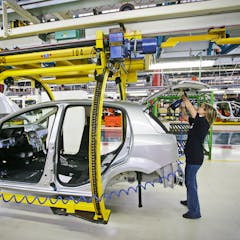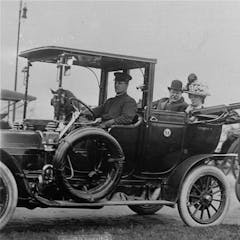
Articles on Automotive industry
Displaying 1 - 20 of 97 articles

VINs can tell a story if you know what to look for.

Despite intermittent efforts over the past three decades, the UAW union has been unable to organize employees of foreign-based automakers in states such as Alabama and Tennessee.

On March 7, workers at the Ford Rouge River plant marched for better working conditions, sparking America’s labor movement. Almost a century later, a quiet park honors their memory.

The city often becomes a magnet for anti-Arab sentiment during election years and global conflicts; however, the more interesting story is what happens in the city when the spotlight is turned off.

‘Winning’ in negotiations isn’t always the best approach.

In close races, support from the United Auto Workers and the rest of organized labor could prove decisive.

Cars can collect data via cameras, microphones, sensors, and connected phones and apps. Our privacy laws need urgent reform if these data are to be kept safe.

Building an auto industry for the future that serves the needs of workers, companies and consumers alike will require innovative partnerships between the union and management.

A work stoppage hitting the three largest American automakers at the same time is unprecedented.

The connected vehicles of the future could make our cars and data more vulnerable to theft and malicious attack.

A strike would shake up the auto industry, even though both the union’s ranks and the share of the US automotive market controlled by GM, Ford and Stellantis have been shrinking for decades.

The new techniques go far beyond hacking your car’s key fob system.

The UK needs an industrial strategy to counter the rise of EU battery manufacturing.

Whether safety-related fixes demand a software upgrade or a trip to the dealership, carmakers must notify the National Highway Traffic Safety Administration and all affected drivers

Our interviews with ex-automotive workers reveal how economic change interrupts lives, casting people into new worlds of precarious work and long, indefinite journeys in search of security.

This technology, popular when automobiles first caught on, had a short resurgence in the 1970s.

The road ahead needs electricity.

A look back at how Canada secured auto investment in the past shows how a peripheral economy gained a major auto sector — and how it might hold onto it even in the face of U.S. protectionism on EVs.

China used to only make Soviet cars under licence. Now it’s taking on Tesla.

Indonesia’s car sales tax cut could damage the environment as more cars on the streets will increase carbon emissions.
